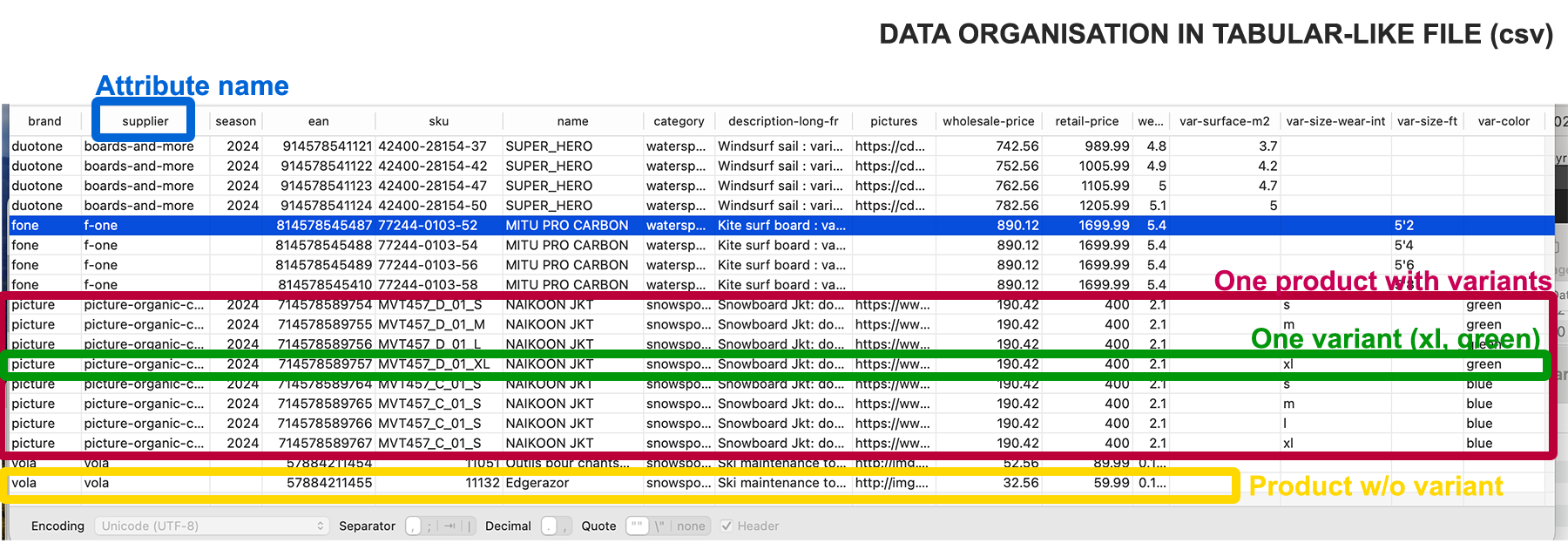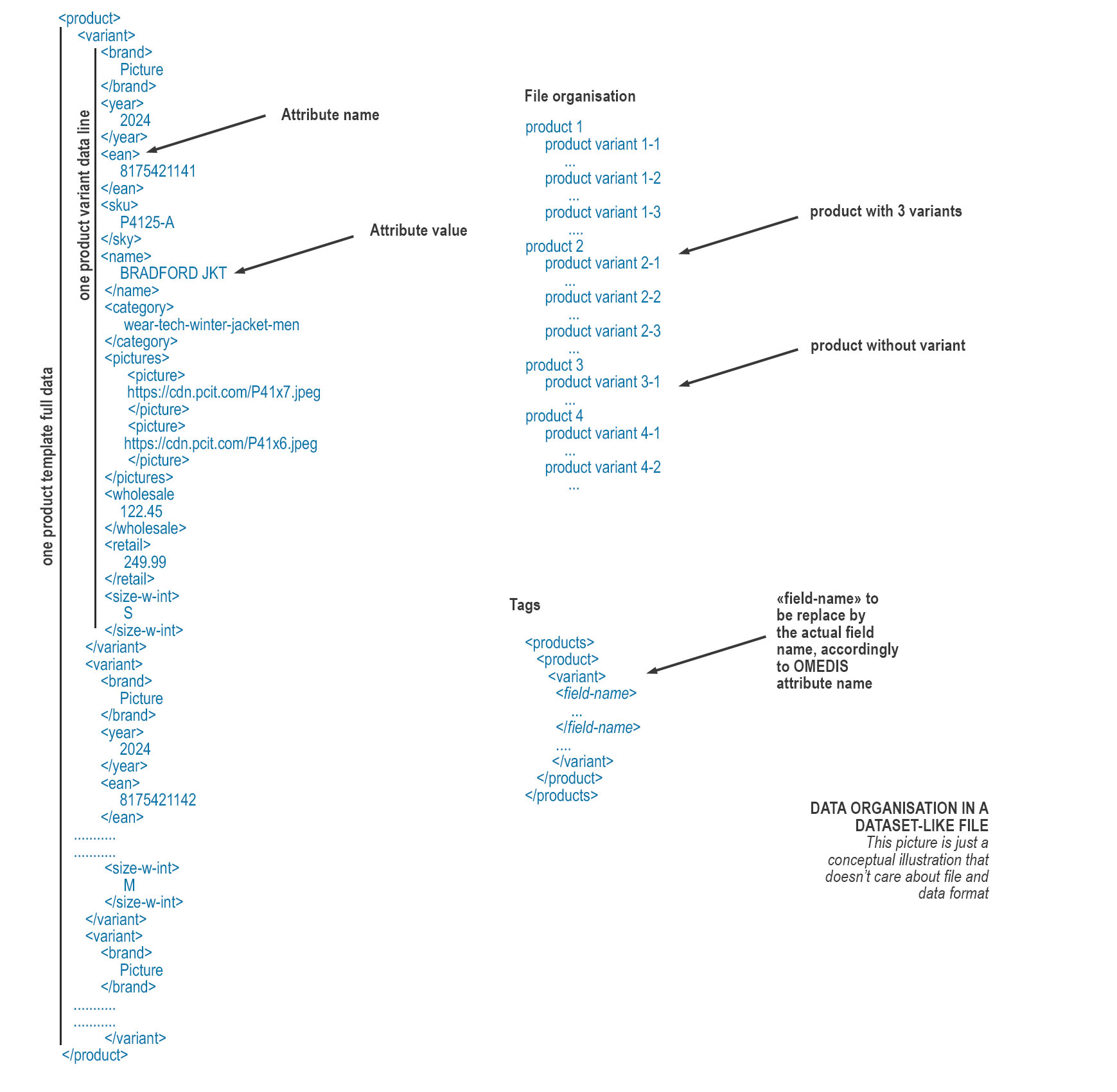Containers (files)
This part or the standard is about organisation of data in datasets. You will also be able to download sample files.
We will define here
- Which type of file we can use (ie. xls, csv, xml, api)
- How data is organised in the file
File type
Datas can be sent by digital file, or REST API. If using a file, we suggest to use XML or CSV file. We should avoid EXCEL native files (xls and xlsx) since content is highly dependant from regional settings of the source computer. Keep in mind that excel file can be saved as csv.
CSV file (tabular like file)
If using csv file, please report to the RFC 4180 standard : - The field separator has to be comma - End of line has to be CR/LF - Coding has to be UTF-8 - Any field quoted with double quote First line has to be the list of attribute name (ie. columns), conform to OMEDIS attributes name. The order of columns can be set freely. The first line will indicate what data should be considered. Next lines : each line is representing one product variant.
Rules
- Different variant of a same product needs to strictly share the same product name, and be declared in consecutive lines. This is the way interpreting programs will group variants in a same product.
- Var-xxxx attributes has no be left empty if not defining a specific variant

XML file
If using csv file, please conform to XML 1.0 Specification : - Coding has to be UTF-8
Rules
- Variants of a same product has to be grouped in the same product tag.
- Var-xxxx attributes has to be specified only if defining a specific variant
- A product without variant will have only one variant tag
- Each data has to be contained in a tag. The tag name has to be conform to OMEDIS attributes name.
